Browse the Collection
Browsing 94 items in our archive
-
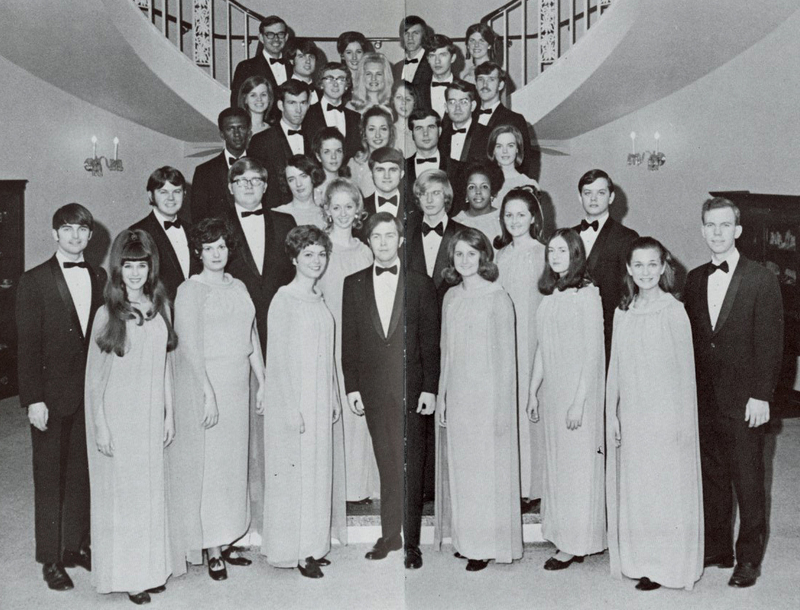 Furman University | Image
Furman University | ImageFurman Concert Choir
The 1970-1971 Furman University Concert Choir. Members of the choir include: Sarah Reese '71, in the third row, far right, and Ronald (Rawn) Harbor '71, in the fourth row, far left. Reese and Harbor were some of Furman's first African American students.Learn more -
 Furman University | Image
Furman University | ImageFurman Program Board
Photograph of the 1967-68 Furman University Program Board. The Program Board was an organization that sponsored the majority of activities provided by the Watkins Student Center. The Collegiate Education Service Corps, CESC, also functioned under the Program Board. It was one of the most worthwile and unique organizations in which Furman students could participate. From left to right in photo are Ms. Betty Alverson, Julie Burts, Karen Metcalfe, Joe Vaughn, Jan Clark, Harriet Hamrick, Chris Turner, and Ms. Juanita Copleland.Learn more -
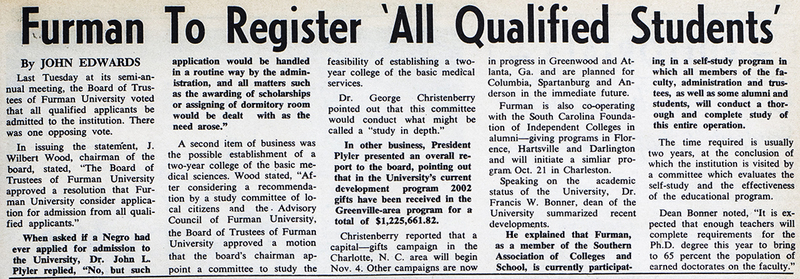 Furman University | Text
Furman University | TextFurman to Register 'All Qualified Students'
An article appearing in Furman's student newspaper, The Paladin, dated October 12, 1963, detailing a Furman Board of Trustees meeting, held October 8th, 1963, where the Board approved a resolution that Furman University consider applications for admission from all qualified applicants. The author also writes about other topics discussed in the meeting.Learn more -
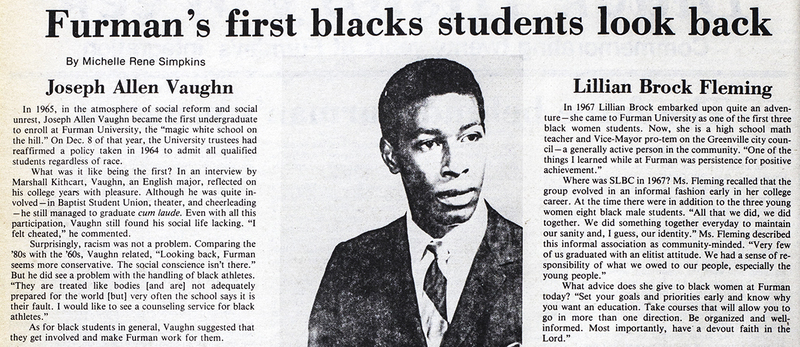 Furman University | Text
Furman University | TextFurman's First Black Students Look Back
An article appearing in Furman's student newspaper, The Paladin, dated February 8, 1985. In the article Joseph Vaughn '68, Furman University's first African American student, and Lillian Brock Flemming '71, one of the first two African American females to graduate Furman, reflect on their time at Furman, and offer advice to current African American students.Learn more -
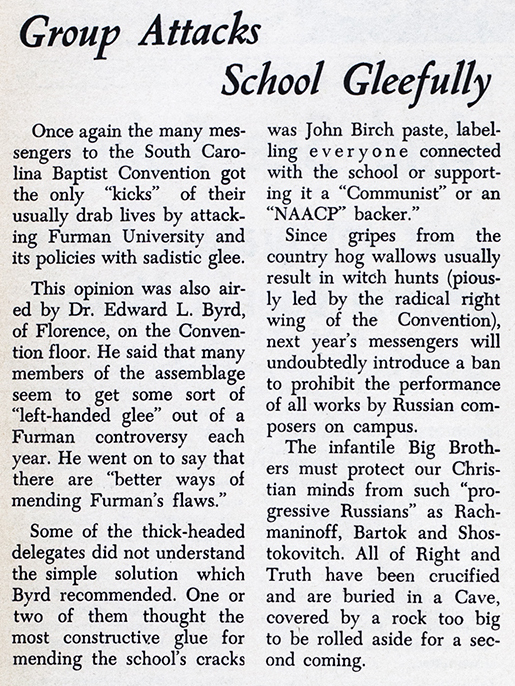 Furman University | Text
Furman University | TextGroup Attacks School Gleefully
An editorial appearing in Furman's student newspaper, The Paladin, dated November 16, 1963. The author is very critical of the South Carolina Baptist Convention and it's reaction to the Furman trustee's resolution authorizing Furman to admit all qualified applicants regardless of race or color.Learn more -
 Furman University | Text
Furman University | TextHornet Poll Tabulations Indicate Liberal Trend
Editorial in The Furman Hornet student newspaper, dated November 15, 1957. The editorial discusses freedom of public expression on campus, and the results of a recent anonymous 'Hornet Poll,' showing a 'relatively large number of students favoring total or partial racial integration.' A variety of questions and results about other issues Furman students face are also mentioned.Learn more -
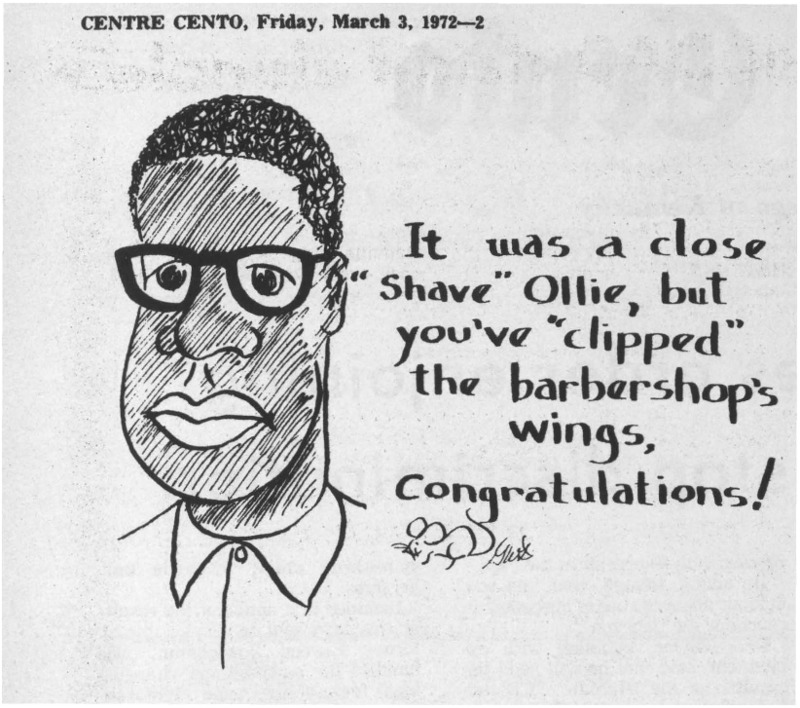 Centre College | Text
Centre College | TextIt Was a Close ‘Shave’ Ollie, but You’ve ‘Clipped’ the Barbershop’s Wings, Congratulations!; Discrimination Ordered Ended
Editorial cartoon celebrating the East District Federal Court order invalidating a section of Kentucky law that allowed Danville barbershops to discriminate against African American customersLearn more -
 Furman University | Image
Furman University | ImageJoe Vaughn in 'The Firebugs'
Joseph Vaughn '68 and Linda Friddle '69 acting in the Furman Theater Guild's production of Max Frisch's comedy, 'The Firebugs.' Vaughn became the university's first African American student on Jan. 29, 1965.Learn more -
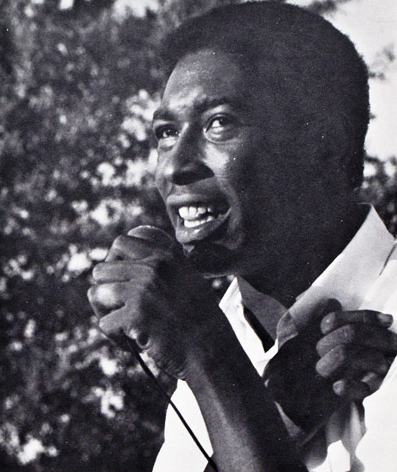 Furman University | Image
Furman University | ImageJoe Vaughn leading the cheer
Joseph Vaughn '68, as part of the Cheer Squad, leading fans in a cheer at one of the Furman football games. Vaughn became the university's first African American student on Jan. 29, 1965.Learn more -
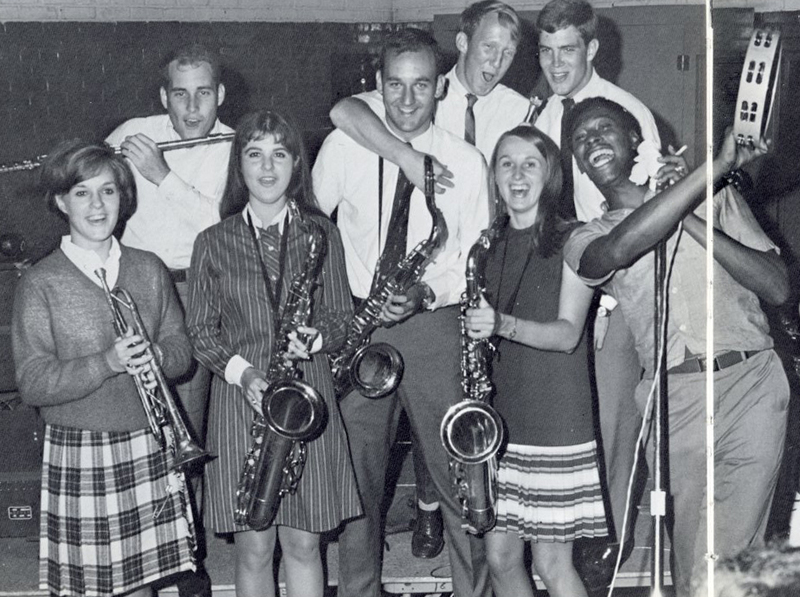 Furman University | Image
Furman University | ImageJoe Vaughn performing with classmates
Joseph Vaughn '68 and classmates having fun during a musical performance. Vaughn became the university's first African American student on Jan. 29, 1965.Learn more -
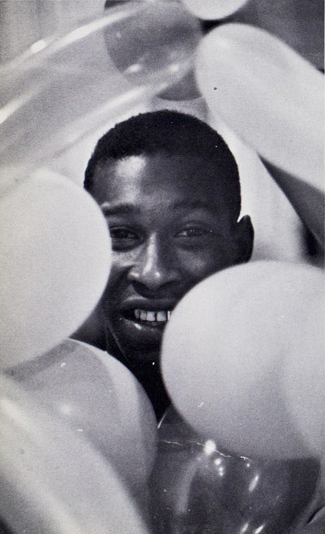 Furman University | Image
Furman University | ImageJoe Vaughn with balloons
Photograph from the 1966 Bonhomie (Furman Yearbook) of Joseph Vaughn '68 surrounded by balloons. Vaughn became the university's first African American student on Jan. 29, 1965.Learn more -
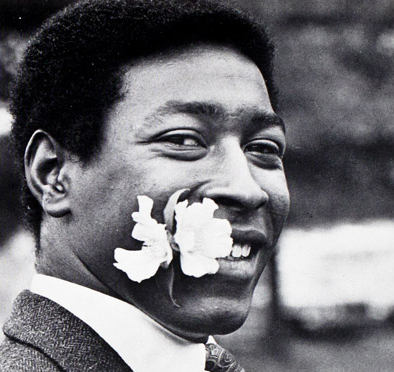 Furman University | Image
Furman University | ImageJoe Vaughn with flower
Photograph of Joseph Vaughn '68, holding a white azalea blossom in his teeth. Photo taken during his senior year at Furman. Vaughn became the university's first African American student on Jan. 29, 1965.Learn more -
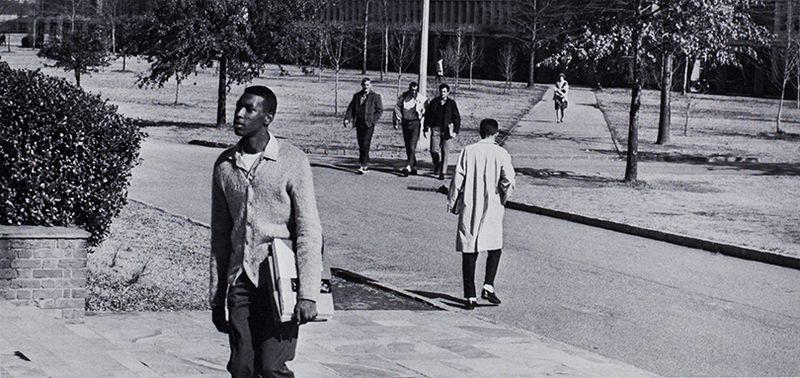 Furman University | Image
Furman University | ImageJoseph Vaughn
Photograph from the 1965 Bonhomie (Furman Yearbook) of Joseph Vaughn '68 standing on the stairs in front of the James B. Duke Library, on the campus of Furman University. Vaughn became the university's first African American student on Jan. 29, 1965.Learn more -
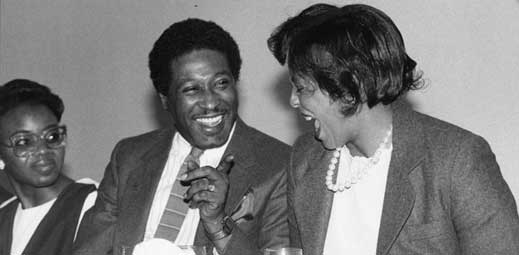 Furman University | Image
Furman University | ImageJoseph Vaughn and Lillian Brock Flemming share a laugh
Joseph Vaughn '68 and Lillian Brock Flemming '71 share a laugh during a Religion in Life lecture titled 'Racial Integration at Furman: 21 Years Later' given in 1986.Learn more -
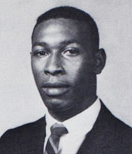 Furman University | Image
Furman University | ImageJoseph Vaughn yearbook photo
Class portrait from the 1966 Bonhomie (Furman Yearbook) of Joseph Vaughn '68. Vaughn became the university's first African American student on Jan. 29, 1965.Learn more -
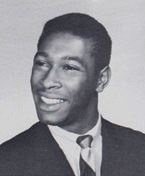 Furman University | Image
Furman University | ImageJoseph Vaughn yearbook photo
Class portrait from the 1967 Bonhomie (Furman Yearbook) of Joseph Vaughn '68. Vaughn became the university's first African American student on Jan. 29, 1965.Learn more -
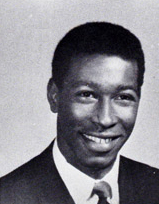 Furman University | Image
Furman University | ImageJoseph Vaughn yearbook photo
Senior Class portrait from the 1968 Bonhomie (Furman Yearbook) of Joseph Vaughn '68. Vaughn became the university's first African American student on Jan. 29, 1965.Learn more -
 Centre College | Text
Centre College | TextJudge Mac Swinford Rules in Favor of Summary Judgement
Explains the next steps in the lawsuit filed against the barbers in Danville that refused to cut black hair. The article emphasizes how students were determined to find a solution to put an end to segregation, even if the case was not ruled in their favorLearn more -
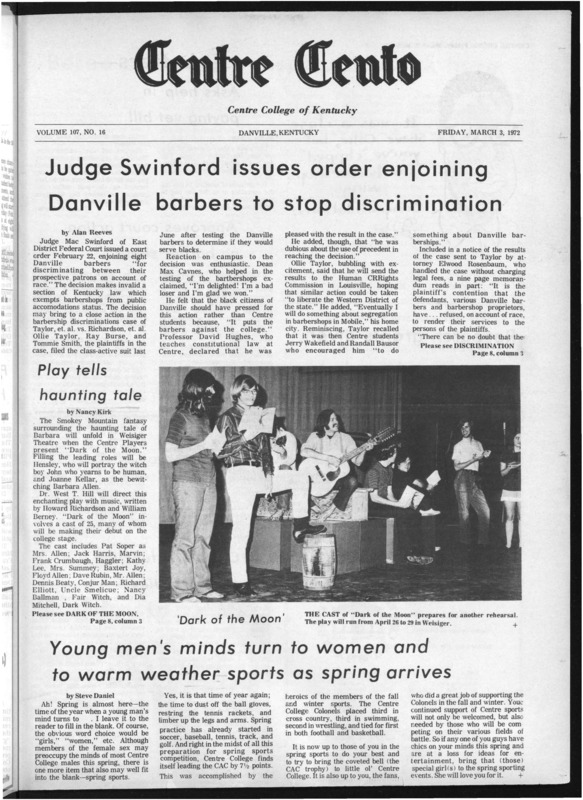 Centre College | Text
Centre College | TextJudge Swinford issues order enjoining Danville barbers to stop discriminating
The article explains how the judge ordered the barbers to integrate. Centre’s Dean expressed his excitement. There appears to be a positive reaction from faculty and staff members which may represent the attitudes of the leadership at this time.Learn more -
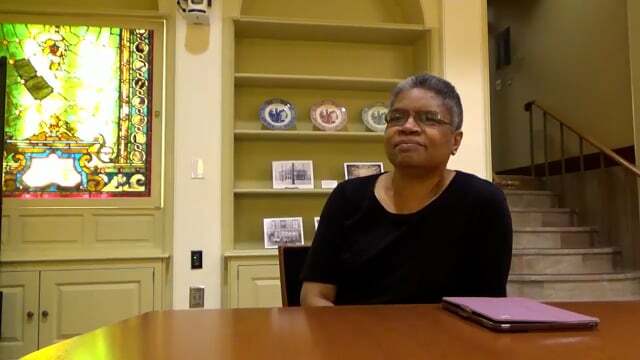 Furman University | Moving image
Furman University | Moving imageJune Manning Thomas Oral History
Video interview with June Manning Thomas. Ms. Thomas enrolled at Furman in 1967 as one of the university's first African American women. She begins the interview speaking about her hometown, Orangeburg, South Carolina, during the 1960s, and being a part of the first group of African American students to attend racially integrated public schools there. As a high school student June attended a summer program at Furman, and she talks about the program and how it infuenced her decision to attend Furman. Ms.Learn more -
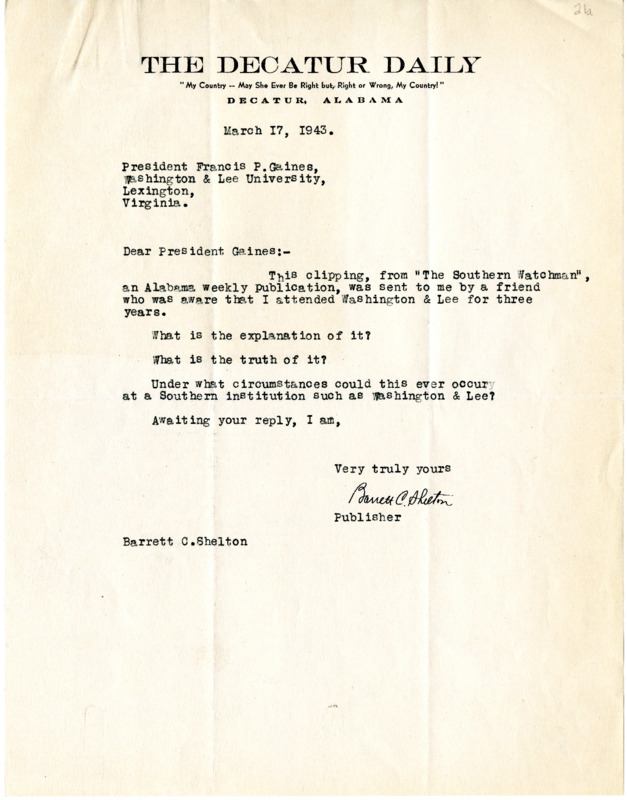 W & L University | Text
W & L University | TextLetter from Barrett C. Shelton to Francis P. Gaines (March 17, 1943)
In this letter with enclosed clipping from the Southern Watchman, Publisher Barrett C. Shelton asks President Francis P. Gaines about Black W&L graduates. Gaines responds.Learn more -
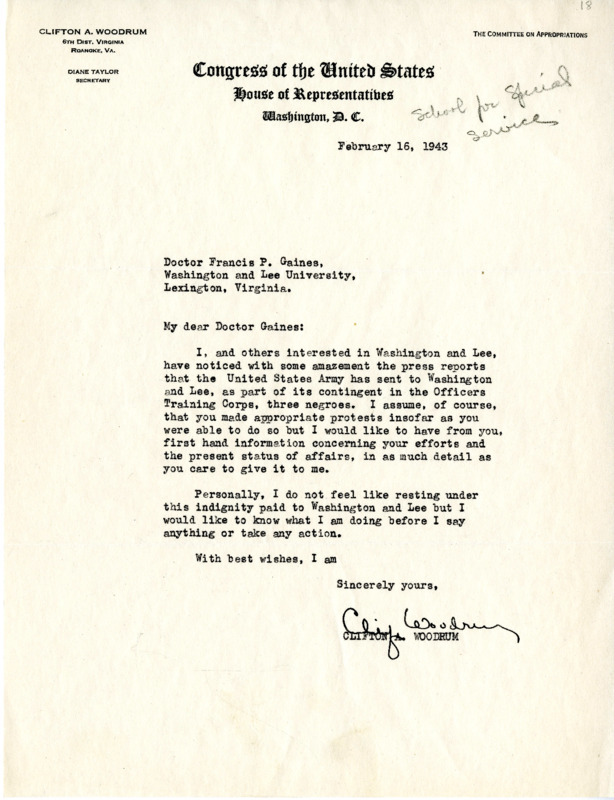 W & L University | Text
W & L University | TextLetter from Clifton A. Woodrum to Francis P. Gaines (February 16, 1943)
In this letter from U.S. Congressman and W&L Law Alumnus Clifton A. Woodrum to President Francis P. Gaines, Woodrum asks Gaines about three Black students sent to the Officers Training Corp at Washington and Lee.Learn more -
 Centre College | Text
Centre College | TextLetter from Conway Boatman to Walter A. Groves stating Union College's present policy on admitting persons of color
Letter from Conway Boatman to Walter A. Groves regarding Union College's policy on raceLearn more -
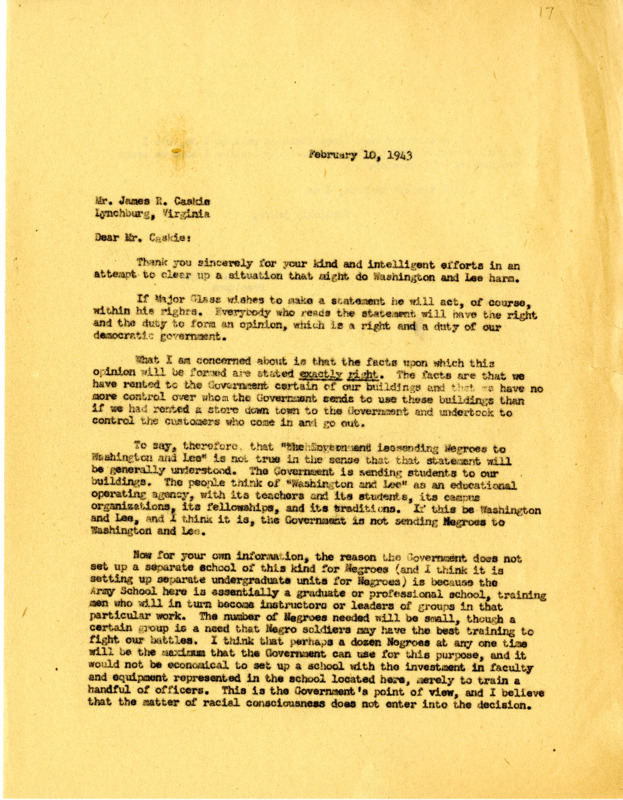 W & L University | Text
W & L University | TextLetter from Francis P. Gaines to James R. Caskie (February 10, 1943)
In this letter from President Francis P. Gaines to Trustee James R. Caskie, Gaines and Caskie discuss the public's perception of the possibility of Black students being present on Washington and Lee's campus through the U.S. Army School.Learn more -
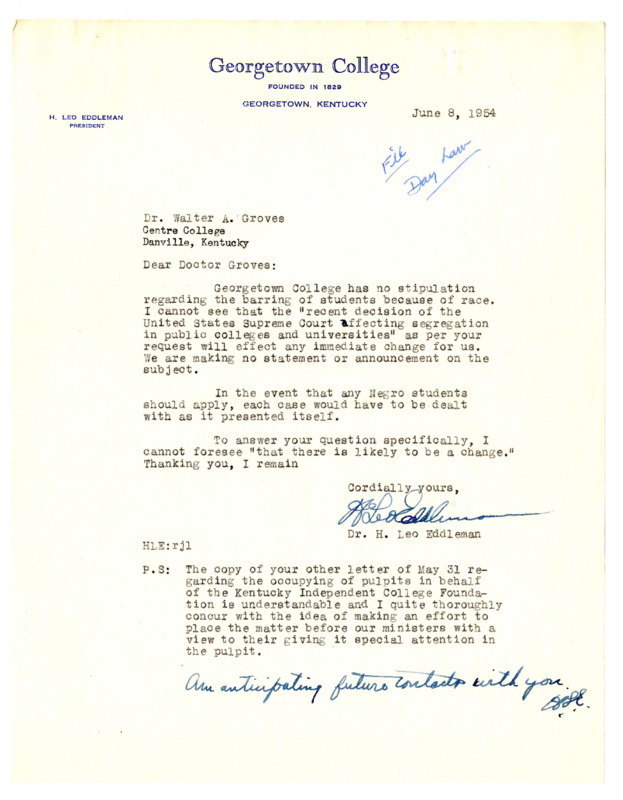 Centre College | Text
Centre College | TextLetter from H. Leo Eddleman to Walter A. Groves stating Georgetown College's present policy on admitting persons of color
Letter from H. Leo Eddleman to Walter A. Groves regarding Georgetown College's policy on raceLearn more
